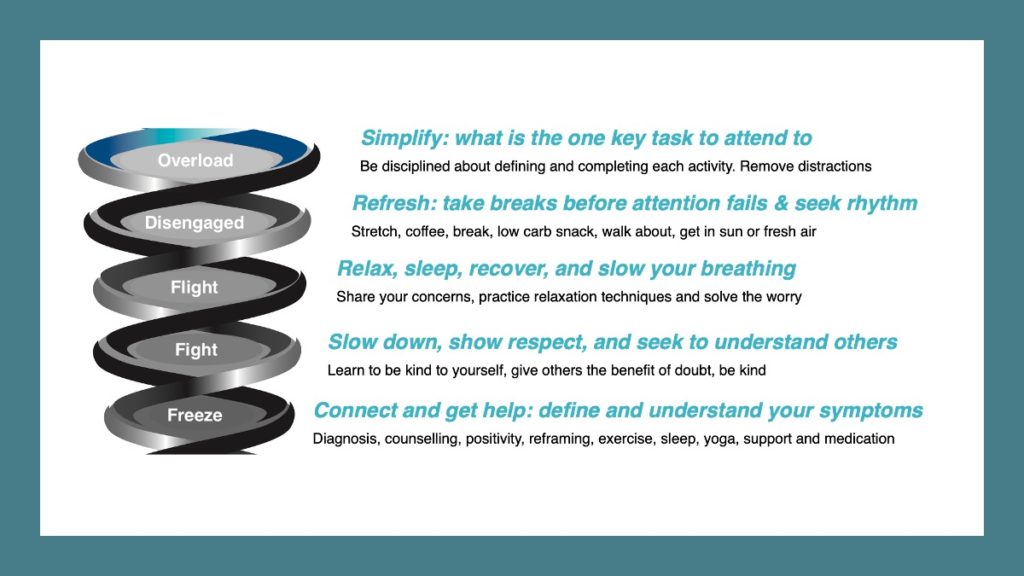
How to Bounce Forward Faster
Lockdown for the third time. Calls cancel work booked. Rain pelts down. Businesses are pummelled. We lifted ourselves up, reinvented work and again, we face adversity.
No-one has escaped. Many have worked from home for months, some through long, dark winters. Millions of jobs have disappeared. Families are bereaved and separated. Governments wallow in debt. Climate threats continue to build.
This is our history. Cycles of collapse and growth beset humanity. Often the four horsemen of disease, famine, mass migration and state failure are triggered by climate shifts.
Time and again, we, humanity find a way to makes sense of chaos and despair. We bounce. We innovate, adjust and find new solutions. We reconnect, demonstrate altruism and find our way back to flow.
Acknowledging fully the suffering and insecurity many of us face right now, there are lessons and deliberate actions available to help us bounce.
Lesson 1: Make sense of the downward suck
Resilience fails fast or slow. When the mind is overloaded, we lose focus and then disengage. Creative thinking fades, and the old reptilian emotions activate. Fear, the primitive flight reaction, activates first. We want to run away – go to bed, switch to a screen, drink, eat and procrastinate. If we do not accept and counter this normal reaction, anxiety is the price we pay.
When anger, the fight reaction, triggers, we seek to blame – government, epidemiologists, employers or family members. Filled with the poisonous chemicals of anger, we lash out. Unresolved, this leads to hostility and conduct disorder.
Finally, sadness, the freeze reaction, activates. We withdraw into isolation and ruminate on all that has gone wrong. Again, though normal, we must counter it before we sink into despair and depression.
Lesson 2: Bounce forward fast
Bounce back is delusional. It is a fixed mindset. You cannot go back and reverse change. When we confront adversity we learn, adapt and apply new skills. Adversity can overwhelm but mostly we grow and bounce forward to an improved state of function. Acknowledge the suck, focus on how adversity can motivate for a fresh perspective, learning and constructive action.
Focus on the small things – a powernap, a stretch, a walk, reach out to a friend or colleague, or appreciate the rejuvenation brought by rain. Action is required. Small steps lead to bigger steps. Build your momentum. Tackle bigger challenges.

Lesson 3: Adversity makes you stronger
Despite our brilliance and resources, we simply fail to recognise and action preventive measures – health, saving, moderation, climate or state abuse. We are the archetypal boiled frog.
We can learn by confronting the consequence of adversity. When we get a shock and feel pain, we pay attention and are motivated to act. This is how nature has always learned to adapt and prevail. Being too safe and over-protected leads to complacency and fragility. The body becomes weak, destructive emotions prevail, and thinking becomes sloppy.
There are times that we must protect the vulnerable. We can learn to reframe adversity as a challenge to pay attention, be curious, learn and try again. Engaging adversity with wisdom and courage, allows us to strengthen and upskill the muscles of the body, the emotions and the mind. Growth follows.
Lesson 4: Take care of yourself
Basic self-care is most essential when things are difficult. This is the time to be a little ruthless as coach. Make sure you sleep enough, at regular times and with quality. Do some exercise – even a few stretches, push-ups or a brisk walk. Even a minute can make a difference. Maintain good posture.
Slow your breathing. Focus on breathing slowly through the nose. Aim for six breaths per minute. Four seconds in and six out or five in and five out are well-established options. For the more adventurous, ideally with supervision, you can try the breathing and cold exposure disciplines of Wim Hoff.
Lesson 5: Name, tame and reframe emotions
We are slowly learning to master the world of emotion. For most they ‘do not exist’. They are unconscious experiences that take control of our lives. If they are positive, that is fine. But if your emotions are negative, flight (fear), fight (anger) and freeze (sadness), they are wrecking your life and your relationships.
If you don’t feel good, you are in a negative emotional state. Name it. Pause and ask the question: ‘what am I feeling?’ The moment you accurately name the emotion (fear, anger, sadness), the unconscious and ‘reptilian reaction’ becomes conscious. The pre-frontal cortex activates. Accept it, feel it and engage it.
Once you are aware, you are in charge. Now, tame it. Slow your breathing, relax your face, step back, stretch and let the negative emotional reaction settle.
Now you are ready to reframe it. Fear is countered with equanimity and curiosity. Anger is countered with respect and kindness. Sadness in countered with appreciation, gratitude and humour.
Yes, it sounds tricky. Twenty years of neurobiology and positive psychology shows that it works and triggers the broaden and build of growth and connection.
Lesson 6: Stop thinking
Much of your thinking in wrecking your life. A flight reaction in the body and the emotion of fear accelerates worry loops about an imagined future. The fight reaction with anger, accelerates rumination on the sins and failings of someone else. The freeze reaction with sadness, accelerates rumination on your own sins and failings.
Name it, tame it and reframe it. Notice and acknowledge when you worry or ruminate. Exhale and come back to the present unfolding situation (tame). Focus 100% on a constructive action in the present.
Lesson 7: Smile, laugh and do something you love
Yes, these are difficult times. Many are suffering. Yet life lusts for itself. Adversity activates bounce and growth. We learn, we reconnect, and we build better futures. Evolution is on our side. Our genes are resilient. We have the skills. We can watch the experts. Good studies prove the lessons above. They work.
